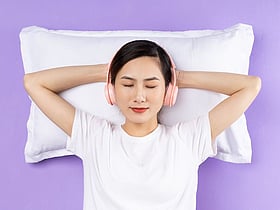Do women require more than 8 hours of sleep than men?

The Science Behind Women’s Sleep Needs
There is a growing conversation around the question of whether women truly need more sleep than men. While it might seem like a simple matter of personal preference, scientific research suggests that there are real biological reasons why women may require additional rest at certain stages of life.
According to studies, there are notable differences in how men and women experience sleep. These differences include variations in the amount of time spent in each sleep stage and the natural timing of their sleep-wake cycles. Research also indicates that when recovering from sleep deprivation, women tend to spend more time in deep sleep compared to men, which could suggest they are more sensitive to the effects of sleep loss.
Moreover, women are more vulnerable to the health consequences of poor sleep. This includes an increased risk of mood disorders and cardiovascular issues. Although not all women require significantly more sleep than men, biological factors such as hormonal fluctuations can make sleep disturbances more common and increase the likelihood of developing sleep disorders.
Biological and Hormonal Differences
Men and women are wired differently, both biologically and hormonally. Dr. Shikha Garg, a Specialist Obstetrics & Gynaecology at Aster Royal Clinic, Downtown, explains that on average, women may need 12 to 20 minutes more sleep per night than men. While this might not sound like much, these extra minutes can add up over time, especially for women who are dealing with hormonal shifts, multitasking demands, and the unique challenges of pregnancy and motherhood.
The recommended sleep duration for adults is generally between 7 to 9 hours per night. However, women’s needs can be slightly higher due to hormonal fluctuations. These changes occur throughout a woman’s life, including during puberty, menstruation, pregnancy, and menopause. Dr. Garg highlights that these hormonal shifts can have a significant impact on sleep patterns.
Women also tend to have an earlier circadian rhythm, which affects their natural sleep-wake cycle. This is partly due to increased melatonin production, a hormone that regulates sleep and circadian rhythms in humans.
Common Causes of Sleep Disruption
Hormonal changes are not just abstract biological processes—they can have real and painful effects on sleep. Women often experience symptoms such as excruciating cramping, headaches, or bloating, which can disrupt their sleep patterns. During pregnancy, sleep becomes even more complex. Some expectant mothers may develop Restless Leg Syndrome (RLS), an irresistible urge to move the legs, especially at night. Magnesium and vitamin E intake during pregnancy may help alleviate this condition.
After childbirth, sleep becomes a rare luxury. Caring for a newborn means waking up frequently throughout the night, and combined with the drop in pregnancy hormones, this can take a serious toll on a woman’s energy levels. The postpartum phase is often marked by irregular sleep cycles and daytime somnolence.
During menopause, many women experience significant changes in sleep quality. The drop in estrogen and progesterone, hormones that help regulate sleep, can lead to more frequent awakenings, trouble falling asleep, and lighter sleep overall. Hot flashes and night sweats often interfere with rest, and mood changes or anxiety can further complicate sleep. As a result, insomnia becomes more common, and women may feel less refreshed after sleep.
Improving Sleep Hygiene for Women
To support better sleep, it is essential to focus on sleep hygiene. Here are some key recommendations:
- Optimise your sleep environment: Ensure your bedroom is dark, cool, and quiet.
- Keep a regular sleep schedule: Try to go to bed and wake up at the same time every day, even on weekends.
- Avoid caffeine before bed: Caffeine can interfere with your ability to fall asleep.
- Limit screen time before sleeping: The blue light from phones, tablets, and computers can disrupt your circadian rhythm.
- Avoid too many daytime naps: Napping for long periods during the day can affect your nighttime sleep.
These small changes can help reduce sleep disruptions and support better overall health.
Do Women Really Need More Sleep?
Yes, and not because they are dramatic or emotional. Their bodies undergo a continuous hormonal journey throughout their lives, from monthly cycles to major life stages such as pregnancy and menopause. This journey requires energy, and to recharge, women may genuinely need a bit more rest.
Understanding the differences in sleep patterns between men and women can lead to more personalised and precise healthcare guidance. As Dr. Garg notes, this knowledge can help specialists provide better care tailored to individual needs.
So, if your body is asking for rest, listen to it. Sleep isn’t selfish—it’s a vital part of maintaining health and well-being. It’s backed by science.

Posting Komentar untuk "Do women require more than 8 hours of sleep than men?"